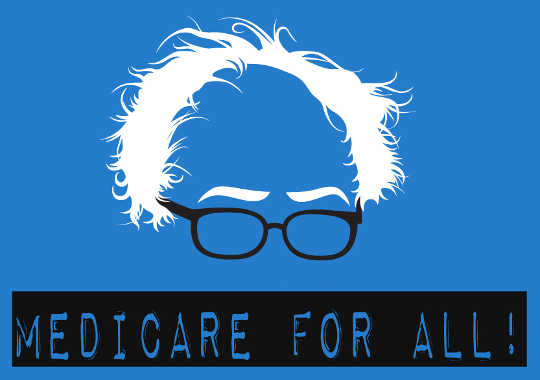
Plans put forth by House Speaker Paul Ryan and HHS Secretary Tom Price are 'unlikely' to fulfill President Donald Trump's campaign promises—'but single payer could'
"Polls show that most Americans—including most people who want the ACA repealed, and even a strong minority of Republicans—want single-payer reform," says Dr. David Himmelstein. (Photo: FOX13 Salt Lake City)
President Donald Trump put forth a good number of lofty promises on healthcare on the 2016 campaign trail. A new analysis released Tuesday reveals there's only one way to achieve them: Enact a single-payer, Medicare-for-All system.
In their paper, published in the Annals of Internal Medicine, health policy experts Drs. Steffie Woolhandler and David Himmelstein show that plans put forth by House Speaker Paul Ryan or Health and Human Services Secretary Tom Price are "unlikely" to meet Trump's campaign promises of more coverage, better benefits, and lower costs. (Indeed, even administrative tweaks announced last week by the Trump administration appeared to undercut those promises, as Common Dreams reported.)
But "single-payer reform could," write the co-founders of Physicians for a National Healthcare Program (PNHP). "Such reform would replace the current welter of insurance plans with a single, public plan covering everyone for all medically necessary care—in essence, an expanded and upgraded version of the traditional Medicare program."
Such reform, also known as Medicare-for-all, could save $504 billion annually on healthcare bureaucracy, they say, plus an additional $113 billion "could come from adopting the negotiating strategies that most nations with national health insurance use, which pay approximately one half what we do for prescription drugs."
These savings would offset the cost of expanding insurance to the 26 million who remain uninsured despite the Affordable Care Act (ACA), as well as "plugging the gaps in existing coverage—abolishing co-payments and deductibles [and] covering such services as dental and long-term care that many policies exclude."
"We're wasting hundreds of billions of healthcare dollars on insurance paperwork and profits," said Woolhandler on Tuesday. "Private insurers take more than 12 cents of every premium dollar for their overhead and profit, as compared to just over two cents in Medicare. Meanwhile, 26 million are still uninsured and millions more with coverage can't afford care. It's time we make our healthcare system cater to patients instead of bending over backward to help insurance companies."
Furthermore, the authors write:
The potential health benefits from single-payer reform are more important than the economic ones. Being uninsured has mortal consequences. Covering the 26 million persons in the United States who are currently uninsured would probably save tens of thousands of lives annually. And underinsurance now endangers many more by, for example, delaying persons from seeking care for myocardial infarction or causing patients to skimp on cardiac or asthma medications. Single-payer reform would also free patients from the confines of narrow provider networks and lift the financial threat of illness, a frequent contributor to bankruptcy and the most common cause of serious credit problems.
Lawmakers should take heed of the PNHP analysis, as much of the energy around this week's Resistance Recess nationwide is focused on healthcare reform.
As Chris Petersen, described by the New York Times as "a 62-year-old pig farmer and proud progressive Democrat," told Sen. Chuck Grassley (R-Iowa) on Tuesday, by voting to repeal the ACA, or Obamacare, "[y]ou're going to create one great big death panel in this country."
"Don't repeal Obamacare," Petersen begged his senator. "Improve it!"
As many have argued, and as the PNHP authors confirm in their paper, the way to do that is to embrace a single-payer system.
"We urgently need reform that moves forward from the ACA, but the Price and Ryan plans would replace Obamacare with something much worse," said Himmelstein. "Polls show that most Americans—including most people who want the ACA repealed, and even a strong minority of Republicans—want single-payer reform."
The Annals of Internal Medicine is the flagship journal of the American College of Physicians. According to PNHP, Tuesday's commentary is "believed to be the first full-length call for single payer, or national health insurance, that the journal has published in its 90-year history."
This article originally appeared on Common Dreams
About The Author
Deirdre Fulton is a Common Dreams staff writer.
Related Books
at InnerSelf Market and Amazon

























